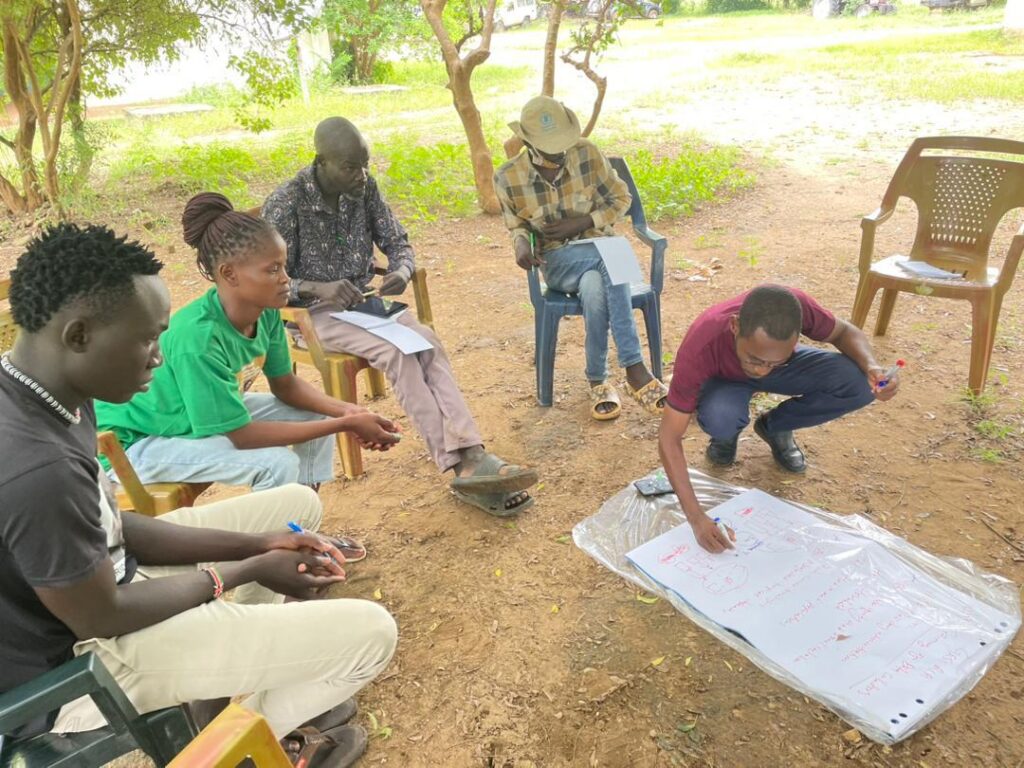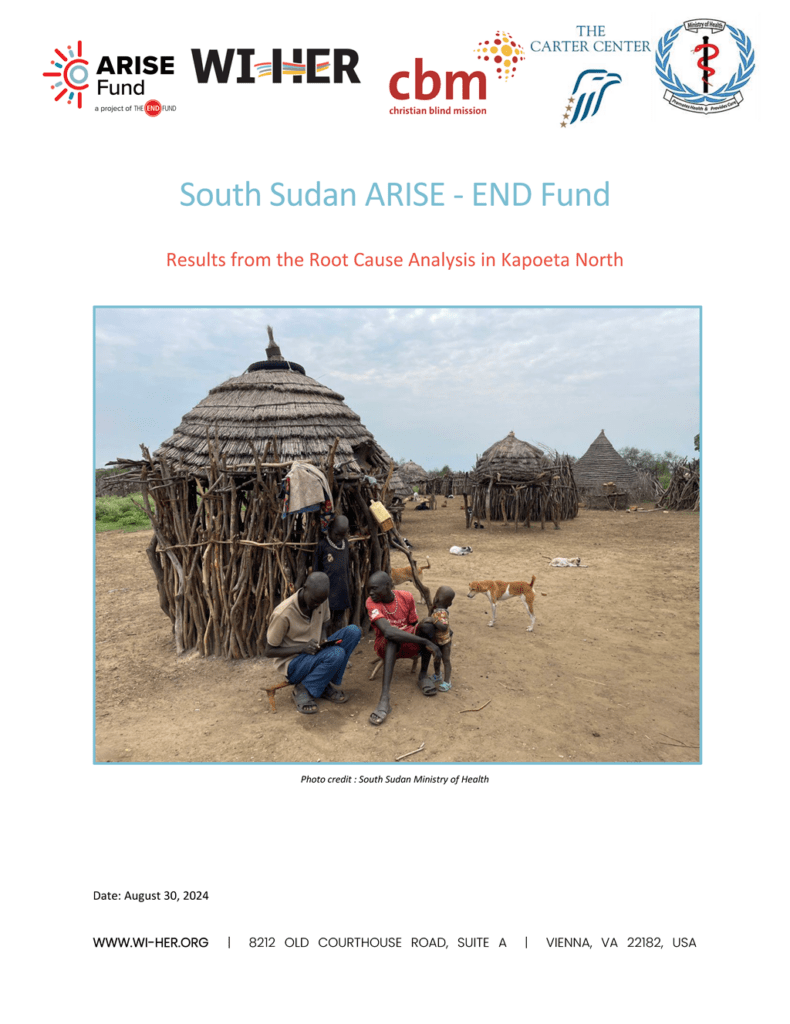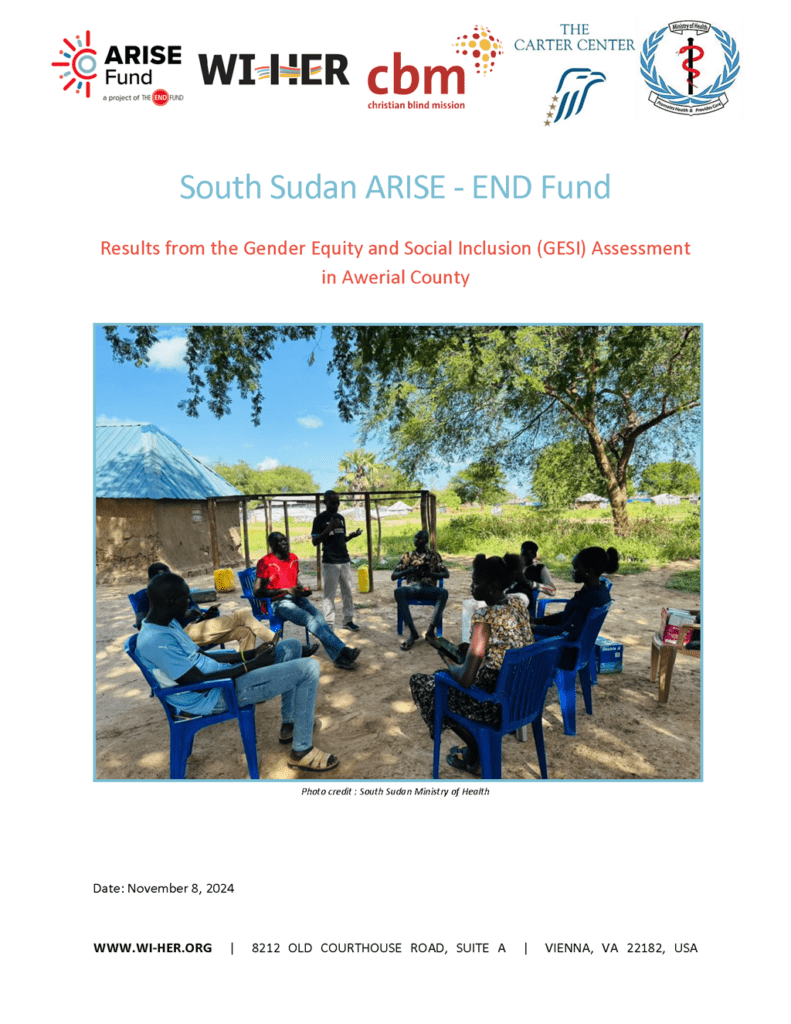South Sudan ARISE – END Fund: Results from Root Cause Analyses Inform Recommendations for future NTD MDA Campaigns

Persistent neglected tropical disease (NTD) transmission is an ongoing challenge in South Sudan despite ongoing Mass Drug Administration (MDA) efforts. GESI (gender equity and social inclusion) related barriers have been identified as major factors inhibiting equitable access to MDA and subsequent adherence.
To better understand these factors, WI-HER – on behalf of END Fund’s Accelerate Resilient, Innovative, and Sustainable Elimination of NTDs Fund, known as the ARISE Fund, and in partnership with the South Sudan Ministry of Health (MoH), The Carter Center, and Christian Blind Mission – conducted a rapid, digital Root Cause Analysis (RCA) as part of WI-HER’s iDARETM methodology and suite of tools in Kapoeta North County to identify and better understand the barriers that inhibit access to and impact acceptance and uptake of trachoma MDA. WI-HER then co-developed recommendations with our partners, including the MoH, to enhance the delivery of NTD services in similar contexts (remote villages with highly nomadic/mobile populations) throughout South Sudan.
The report includes high-level findings from the RCA disaggregated by sex as well as thematic analysis, challenges, and recommendations for future MDA campaigns. The challenges, as detailed in the report, are multifaceted and encompass issues related to:
- Accessibility and mobility,
- Knowledge and awareness,
- Physical vulnerabilities to NTDs,
- Perceptions and attitudes,
- Behavioral practices, and,
- Equity in health service delivery.
These specific barriers must be addressed to ensure the MDA programs reach their full potential, especially in remote and underserved communities.
By addressing these challenges and implementing the team’s recommendations, future treatment campaigns for trachoma will be community-informed and driven, as well as sustainable and effective.
To supplement and further contextualize these findings, WI-HER, in collaboration with the MoH and the Christian Blindness Mission, conducted another RCA in Awerial County, this time in tandem with more in-depth Focus Group Discussions and Key Informant Interviews. Findings are available here
WI-HER uses the KoboToolbox software for its digital Root Cause Analyses. KoboToolbox allows users to develop questionnaires (with a large variety of response options including multiple choice and text) and deploy these via a downloadable application (WI-HER uses tablets to administer the questionnaires in the field). For this project, WI-HER began its questionnaire with a request for consent, utilizing skip logic to ensure that any participants who do not give consent are asked no further questions. This tool allows for both quantitative and qualitative data collection, which is essential in understanding community members’ access to MDA and understanding of NTDs.

